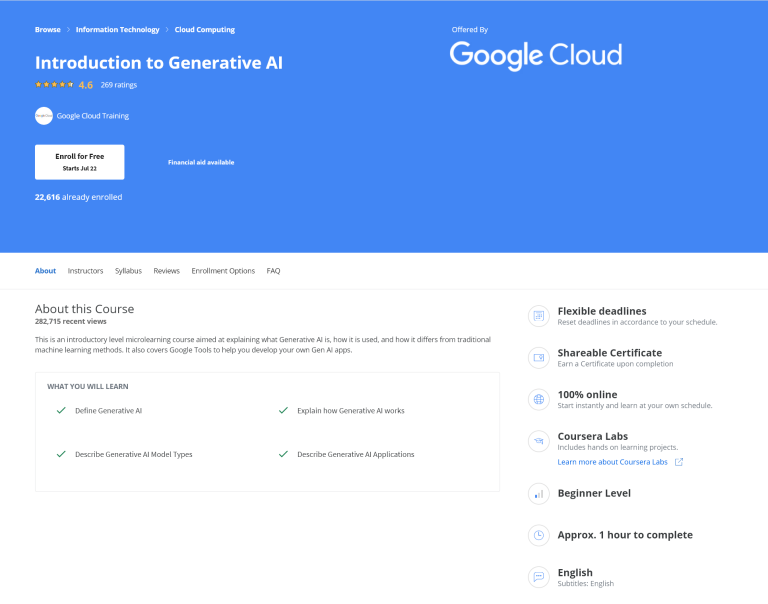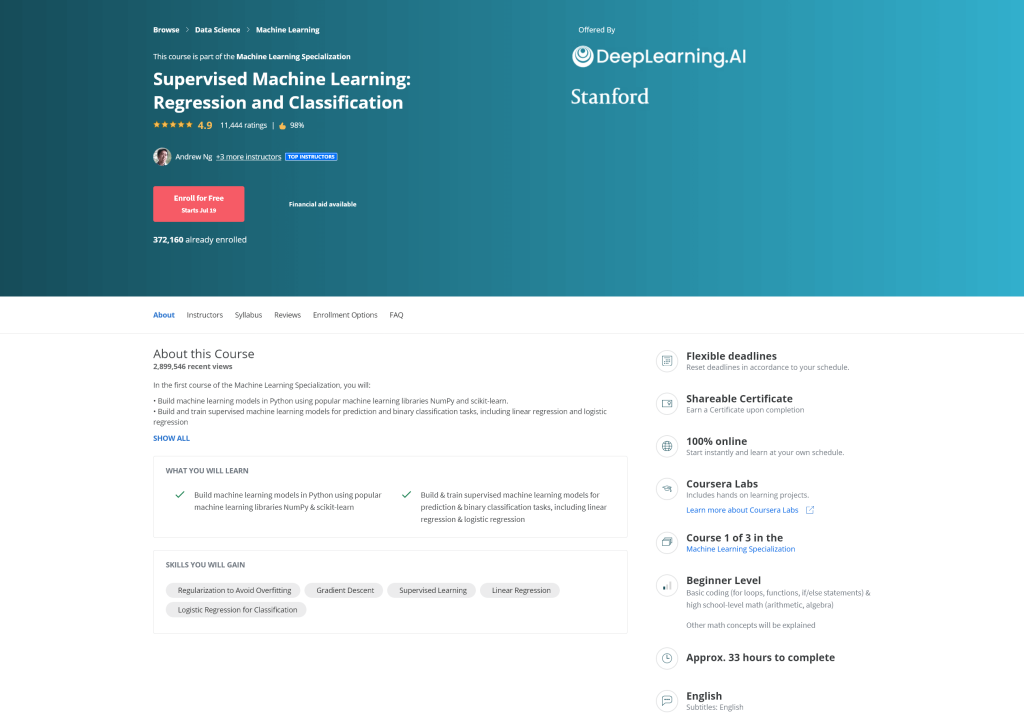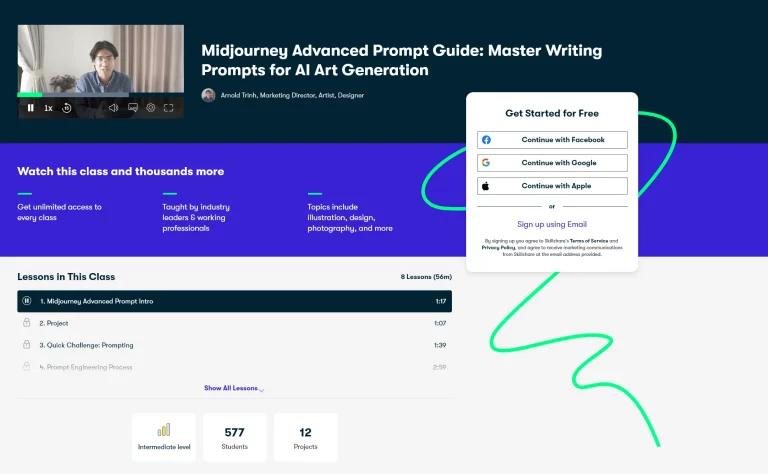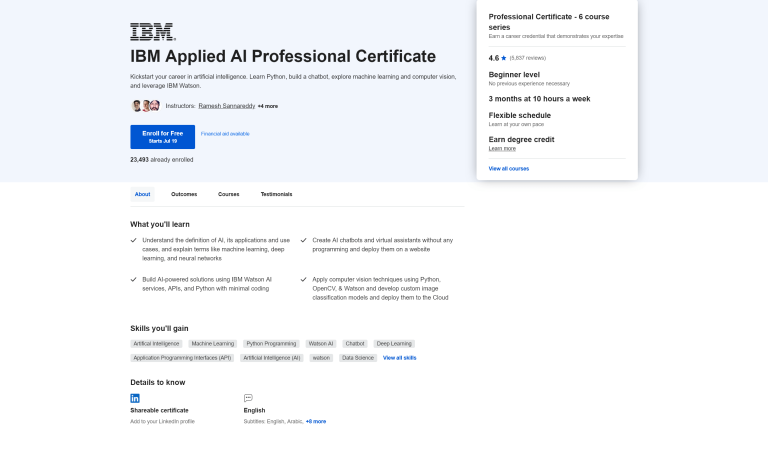
Supervised Machine Learning: Regression and Classification
Created in collaboration between DeepLearning.AI and Stanford Online, this beginner-friendly program, led by the renowned AI visionary Andrew Ng and his team, provides the ideal starting point for anyone interested in mastering machine learning techniques. Learn to build and train powerful predictive and binary classification models using Python, leveraging popular libraries like NumPy and scikit-learn. Whether you’re looking to break into AI or enhance your skills, this course equips you with the practical knowledge to tackle real-world challenges and opens doors to a rewarding career in the dynamic field of machine learning.
Subjects Covered:
- Build machine learning models in Python using popular machine learning libraries NumPy and scikit-learn.
- Build and train supervised machine learning models for prediction and binary classification tasks, including linear regression and logistic regression.
- Introduction to modern machine learning techniques, including supervised learning (multiple linear regression, logistic regression, neural networks, and decision trees) and unsupervised learning (clustering, dimensionality reduction, recommender systems).
- Best practices used in Silicon Valley for artificial intelligence and machine learning innovation, such as evaluating and tuning models and taking a data-centric approach to improving performance.
Course Features:
- Beginner-friendly program suitable for individuals with basic coding knowledge (for loops, functions, if/else statements) and high school-level math (arithmetic, algebra).
- Approx. 33 hours to complete the course.
- 100% online, allowing learners to start instantly and learn at their own schedule.
- Includes hands-on learning projects through Coursera Labs to gain practical experience.
Key Learning Outcomes:
By the end of this course, you will have:
- Mastered key concepts of supervised machine learning and gained a solid understanding of building predictive and binary classification models.
- Acquired proficiency in using popular machine learning libraries NumPy and scikit-learn in Python to build machine learning models.
- Developed skills in regularization techniques to avoid overfitting.
- Learned about gradient descent and its application in machine learning.
- Gained practical know-how to apply machine learning to real-world challenges.
Target Audience:
This course is ideal for:
- Individuals interested in entering the field of artificial intelligence and machine learning.
- Professionals seeking to build a career in machine learning and AI.
- Students and learners with a basic understanding of coding and math who want to explore modern machine learning techniques.
Accreditation:
This course is offered by DeepLearning.AI in collaboration with Stanford Online. Learners will receive a shareable certificate upon completion of the course, showcasing their proficiency in supervised machine learning techniques and the ability to build machine learning models in Python.


Links
Copyright © 2024 EasyWithAI.com
Thank You
Readers like you help support Easy With AI. When you make a purchase using links on our site, we may earn an affiliate commission at no extra cost to you.



